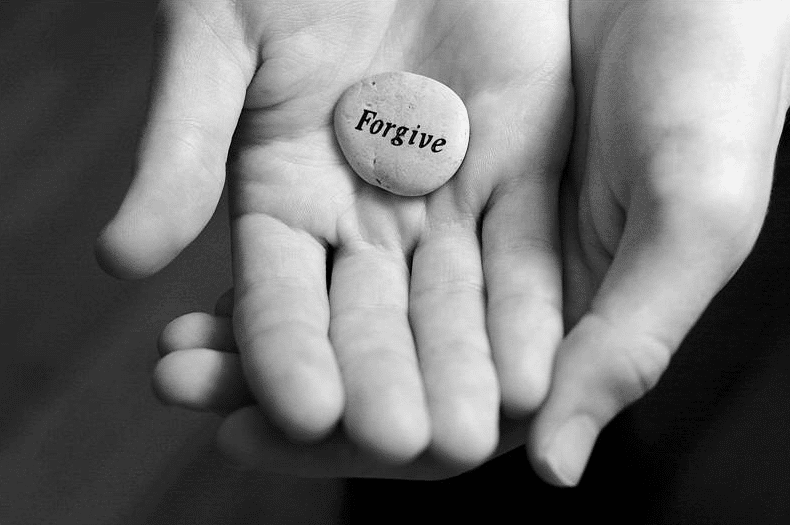How to Forgive Someone: Why It’s Crucial for Your Mental and Emotional Health
How to Forgive Someone: Why It’s Crucial for Your Mental and Emotional Health
Blog Article
Comprehending the Value of Forgiveness in Recovery Relationships
Forgiveness is usually seen as a basic act of allowing go, yet its value in healing relationships extends much past simple absolution. What continues to be to be uncovered is the profound impact forgiveness can have on private growth and communal consistency.
The Definition of Mercy
Although mercy is frequently perceived as a straightforward act of releasing, its interpretation includes a complex interplay of psychological and psychological procedures. At its core, mercy is the aware decision to release sensations of animosity or vengeance toward a private or team that has actually created damage. This process is not merely about discharging the wrongdoer; rather, it includes a profound psychological improvement that can bring about individual growth and healing.
Mercy is complex, usually defined by an individual's inner struggle to resolve their pain with the desire for tranquility. It needs recognizing the misdoings dedicated, refining the associated emotions, and eventually making a choice to move on without the concern of animosity. This option typically entails a cognitive shift, where one reframes their understanding of the disobedience and the perpetrator, permitting empathy and understanding to emerge.
Notably, mercy does not indicate condoning the behavior or failing to remember the violation; it is a calculated act that focuses on emotional health. By defining forgiveness in this fashion, we can value its duty in helping with much healthier relationships and cultivating psychological strength, setting the stage for deeper exploration right into its benefits.
Emotional Advantages of Forgiveness
Forgiveness uses substantial emotional benefits that can greatly influence a person's psychological health and wellness and general well-being. When an individual selects to forgive, they actively release sensations of temper, resentment, and anger, which can otherwise produce a hefty emotional problem. This launch frequently leads to a reduction in anxiety and anxiety, promoting a feeling of peace and psychological security.
Furthermore, forgiveness promotes an increased capacity for empathy and empathy. By recognizing the perspective of the wrongdoer, individuals can cultivate a deeper psychological strength, which enhances their ability to handle future difficulties. This procedure not just boosts emotional regulation however additionally adds to a more favorable outlook on life.
Furthermore, forgiving others can strengthen one's self-worth and self-regard. It permits people to reclaim their personal power, damaging devoid of the negative cycles of victimhood - The importance of forgiveness. This newfound empowerment can lead to healthier emotional responses and stronger interpersonal partnerships
Mercy vs. Settlement
The difference in between forgiveness and reconciliation is important in comprehending the characteristics of healing relationships. Forgiveness is an internal procedure in which a private selects to allow go of resentment and negative sensations towards a person that has actually triggered harm. It is primarily an individual trip, focused on emotional launch and self-healing, permitting one to move forward without lugging the worry of past grievances.
On the other hand, settlement includes restoring and bring back the connection to a state of depend on and mutual regard. This process often needs open communication, energetic participation from both celebrations, and a commitment to resolving the underlying problems that led to the dispute. While mercy can happen individually, reconciliation demands the determination of both people to take part in dialogue and job toward a shared understanding.
It is essential to note that mercy does not constantly result in settlement. An individual may forgive an additional without opting to recover the connection, especially if trust has been irrevocably harmed or if the partnership is deemed unhealthy. Recognizing this difference permits people to blog browse their emotions efficiently and make notified decisions regarding their relationships.
Actions to Grow Forgiveness
Cultivating forgiveness is a deliberate process that original site includes numerous vital steps focused on assisting in psychological recovery. The first step is acknowledging the pain triggered by the crime. Identifying one's feelings is important, as it enables individuals to refine their feelings truly.
Following, assessing the incident and understanding its impact can offer clarity. This reflection ought to include analyzing the motivations behind the culprit's activities and identifying that everyone is imperfect.
The 3rd action entails making an aware choice to forgive. This decision is essential, as it represents a willingness to allow go of bitterness and move on.
Ultimately, revealing feelings in a useful way can be beneficial - The importance of forgiveness. Whether via journaling, talking with a relied on friend, or looking for treatment, articulation of feelings can assist in the mercy trip
Real-Life Instances of Forgiveness

In an additional instance, a dense team of buddies dealt with a considerable break after one participant accidentally shared an exclusive key. Rather than nurturing animosity, the influenced friend decided to forgive, understanding the significance of valuing the relationship over the error. This choice motivated open dialogue and ultimately strengthened their link.

Final Thought
To conclude, mercy plays a critical duty in the healing of partnerships by helping with the launch of negative feelings and fostering empathy. By comparing mercy and reconciliation, individuals can participate in a useful procedure that enhances emotional health. Executing actions to grow mercy can result in transformative end results, strengthening connections and advertising a supportive atmosphere. Ultimately, the practice of forgiveness functions as a catalyst for personal development and the nurturing of much healthier interpersonal dynamics.

Report this page